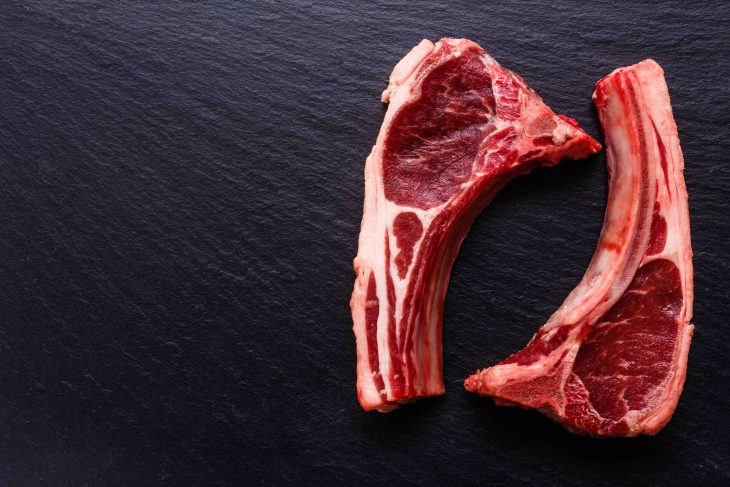
Mutton, also known as sheep meat, is a delicious and nutritious protein source that has been enjoyed by humans for centuries. It is a versatile meat that can be prepared in various ways, including roasting, grilling, stewing, and more. Apart from its delectable taste, mutton offers several health benefits due to its rich nutritional profile. In this article, we will explore 12 key nutrition facts about mutton and how it can contribute to a well-balanced diet.
Protein Powerhouse
Mutton is an excellent source of high-quality protein. It contains all the essential amino acids required by the human body to build and repair tissues. A 100-gram serving of cooked mutton provides approximately 26 grams of protein, making it a valuable option for individuals seeking to meet their daily protein requirements.
Essential Vitamins and Minerals
Mutton is packed with essential vitamins and minerals that are crucial for maintaining optimal health. It is a good source of B vitamins, including vitamin B12, which is necessary for proper red blood cell formation and neurological function. Additionally, mutton contains important minerals such as iron, zinc, selenium, and phosphorus, which play vital roles in various bodily functions.
Iron for Energy
Iron is an essential mineral that plays a key role in carrying oxygen throughout the body. Mutton is a rich source of heme iron, the form of iron that is easily absorbed by the body. Adequate iron intake is necessary for preventing iron deficiency anemia and maintaining energy levels.

Boosts Immune Function
Mutton contains zinc, a mineral known for its immune-boosting properties. Zinc is involved in numerous enzymatic reactions that support immune function and promote the body’s ability to fight off infections. Including mutton in your diet can contribute to a strong and healthy immune system.
Supports Muscle Health
Mutton is an excellent food choice for individuals looking to build and maintain muscle mass. The high protein content in mutton provides the necessary amino acids required for muscle growth and repair. Additionally, the presence of creatine, a natural compound found in mutton, can enhance muscle strength and exercise performance.
Rich in Omega-3 Fatty Acids
Omega-3 fatty acids are essential fats that have been linked to numerous health benefits, including heart health and brain function. While fatty fish is often considered the primary source of omega-3s, mutton also contains these beneficial fats in moderate amounts. Including mutton as part of a varied diet can contribute to a well-rounded intake of omega-3 fatty acids.
Low in Sodium
For individuals watching their sodium intake, mutton can be a suitable choice. Compared to processed meats and certain cuts of beef, mutton generally contains lower levels of sodium. A low-sodium diet can help maintain healthy blood pressure levels and reduce the risk of cardiovascular diseases.
Collagen for Skin and Joints
Collagen is the main structural protein in the skin and joints, providing strength, elasticity, and support. Mutton contains collagen, which, when consumed, may contribute to the production of collagen in the body. This can promote skin health, reduce signs of aging, and support joint mobility and flexibility.
A Natural Source of Creatine
Creatine is a naturally occurring compound found in mutton that plays a vital role in energy production during high-intensity exercises. It helps replenish ATP, the body’s primary energy molecule, leading to improved athletic performance and increased muscle strength. Including mutton in a well-balanced diet can provide a natural source of creatine.
Choline for Brain Health
Mutton contains choline, an essential nutrient that is important for brain health and development. Choline is involved in various processes, including memory, mood regulation, and nerve function. Consuming mutton as part of a diverse diet can help ensure an adequate intake of choline for optimal brain health.

Source of Selenium
Selenium is an essential mineral that acts as an antioxidant, protecting the body against oxidative stress and supporting a healthy immune system. Mutton is a good dietary source of selenium, providing a nutrient boost that contributes to overall health and well-being.
Satiety and Weight Management
Due to its high protein content, mutton can promote feelings of fullness and satiety, helping to control appetite and manage weight. Including mutton in a balanced diet can contribute to a satisfying meal that supports healthy weight management goals.
Final Thoughts
Mutton is a nutritious meat choice that offers various health benefits when consumed as part of a balanced diet. With its protein content, essential vitamins and minerals, and other valuable nutrients, mutton can be a valuable addition to your meals. Remember to choose lean cuts and practice moderation to enjoy the benefits of mutton while maintaining overall dietary balance.
Frequently Asked Questions (FAQs)
Is mutton suitable for individuals following a low-carb diet?
Yes, mutton is suitable for individuals following a low-carb diet. It is a rich source of protein and contains minimal carbohydrates.
Can mutton be included in a heart-healthy diet?
Yes, mutton can be included in a heart-healthy diet. Opting for lean cuts and moderating portion sizes can make it a part of a balanced eating plan.
Is mutton a good choice for individuals with iron deficiency?
Yes, mutton can be a good choice for individuals with iron deficiency due to its high heme iron content, which is easily absorbed by the body.
How does mutton compare to other meats in terms of fat content?
Mutton generally contains a moderate amount of fat. Choosing lean cuts and trimming visible fat can help reduce overall fat content.
Can mutton be enjoyed by individuals following a gluten-free diet?
Yes, mutton is naturally gluten-free and can be enjoyed by individuals following a gluten-free diet. Remember to consult with a healthcare professional or registered dietitian for personalized advice regarding your specific dietary needs and health conditions.
Was this page helpful?
Our commitment to delivering trustworthy and engaging content is at the heart of what we do. Each fact on our site is contributed by real users like you, bringing a wealth of diverse insights and information. To ensure the highest standards of accuracy and reliability, our dedicated editors meticulously review each submission. This process guarantees that the facts we share are not only fascinating but also credible. Trust in our commitment to quality and authenticity as you explore and learn with us.
